Winter can bring a lot of fun activities, but it also brings its own set of struggles. Homeowners across the country must now worry about their water pipes freezing due to the cold weather. If you are one of these homeowners who have water pipes running through their crawl space, then this post is perfect for you!
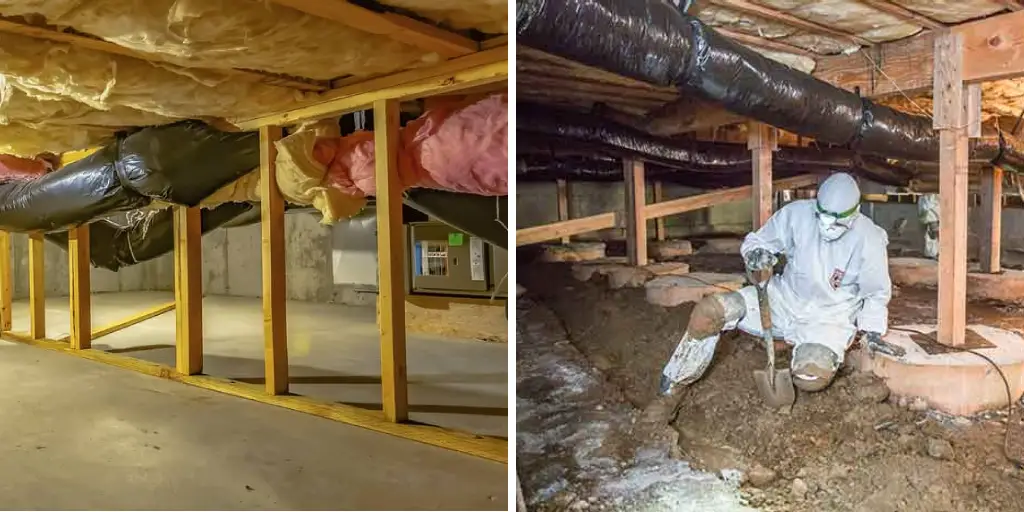
Today we’ll discuss how to keep water pipes in crawl space from freezing so that you can focus on enjoying all there is to do outside in chilly weather! Keep reading to learn more about keeping your water pipes warm and safe during winter.
9 Best Ways on How to Keep Water Pipes in Crawl Space From Freezing
1. Insulate Your Pipes:
Insulation is the most effective solution when it comes to preventing water pipes from freezing! You can wrap your pipes with an insulating foam sleeve or use heat tape to keep them warm. Make sure to insulate both hot and cold water pipes. This is an easy and cost-effective solution that can help prevent frozen pipes. If you have exposed water pipes in the crawl space, insulation is a must.
2. Keep Your Crawl Space Warm:
Keeping your crawl space warm is another way to prevent frozen pipes. Cold air can enter through cracks and gaps in the crawl space walls and cause temperatures to drop below freezing. This will make it difficult for the heat from your home to reach the area where your water pipes are installed. To keep your crawl space warm, seal up any cracks or gaps and consider using a heater.
3. Use Self-Regulating Heat Cables:
Self-regulating heat cables are an affordable alternative to heat tape. They use electricity to generate heat and can be easily installed on exposed water pipes in crawl spaces. These cables adjust their temperature according to the surrounding environment, making them energy-efficient and safe to use.
4. Keep Your Crawl Space Doors Closed:
It may seem obvious, but keeping your crawl space doors closed can play a big role in preventing frozen pipes. When cold air enters through open doors, it lowers the temperature in the crawl space and makes it difficult for heat to reach your water pipes. Make sure to keep your crawl space doors closed at all times, especially during winter.
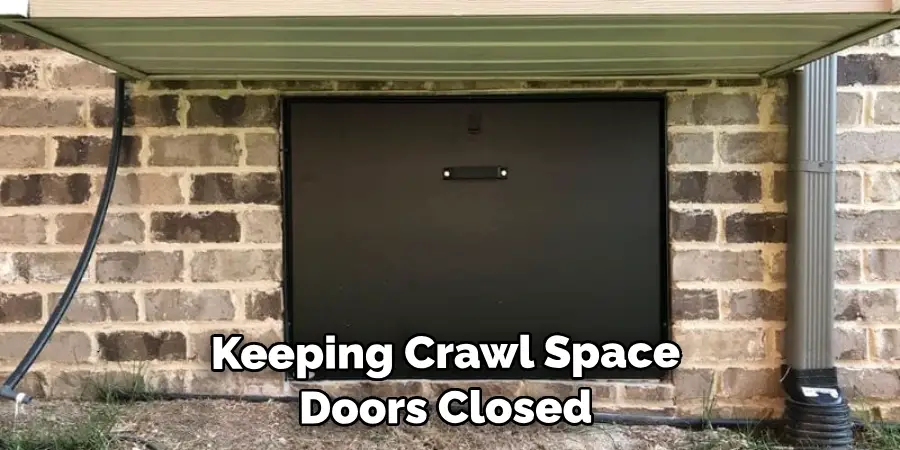
5. Use a Space Heater:
If you have a small crawl space with exposed water pipes, using a space heater can be an effective way to prevent them from freezing. Just make sure to follow safety precautions and never leave the heater unattended. Using a space heater can also help keep the temperature in your crawl space above freezing, providing additional protection for your water pipes.
6. Keep Your Faucets Dripping:
Another simple yet effective way to prevent frozen pipes is by keeping your faucets dripping. This helps to relieve pressure in the water system, reducing the chances of pipes bursting due to frozen water expanding inside. Make sure to only let your faucets drip in cold weather, as this can also lead to high water bills.
7. Install a Smart Thermostat:
Smart thermostats are a great investment for homeowners looking to keep their pipes from freezing during winter. These devices can be controlled remotely and have features that allow you to monitor the temperature in your crawl space. You can set alerts if the temperature drops below a certain level, allowing you to take action before your pipes freeze.
8. Drain Your Pipes:
If you plan on being away from home for an extended period during winter, it may be wise to drain your water pipes. This will prevent any water from freezing and expanding inside the pipes while you are away. Make sure to turn off the main water supply and open all faucets and valves to drain any remaining water. Once you return, turn the water supply back on and let the pipes refill before using them.
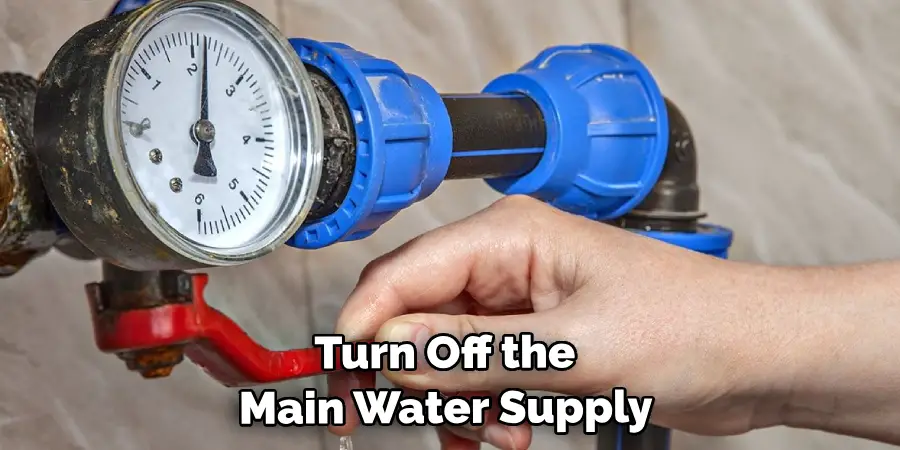
9. Keep an Eye on Your Pipes:
Lastly, it’s important to regularly check your crawl space for any signs of frozen pipes. If you notice that your faucets are not producing any water or hear strange noises coming from your pipes, there is a good chance they are frozen. Take action immediately by using a hairdryer or space heater to thaw the pipes before they burst.
Following these tips can help keep your water pipes in the crawl space from freezing during winter. Remember to always take preventative measures to avoid any costly damage caused by frozen pipes. Stay warm and stay safe this winter season! So, you can enjoy all the fun activities without worrying about frozen pipes. Keep reading our blog for more helpful home maintenance tips! Happy winter!
Additional Tips and Tricks to Keep Water Pipes in Crawl Space From Freezing
1. If you have any exposed pipes in your crawl space, make sure to insulate them properly. This will help keep the pipes at a safe temperature and prevent freezing.
2. You can also consider using heat tape or cables on your water pipes. These are designed specifically to prevent freezing and can be easily installed by wrapping them around the pipe.
3. If possible, try to keep your crawl space well-ventilated. This will help regulate the temperature and prevent any extreme drops in temperature that could lead to frozen pipes.
4. Regularly check for any leaks or cracks in your crawl space that could be letting cold air in. Seal these up to keep the space as warm as possible.
5. Consider installing a remote thermostat in your crawl space. This will allow you to monitor the temperature and make adjustments as needed, even if you’re not physically in the space.
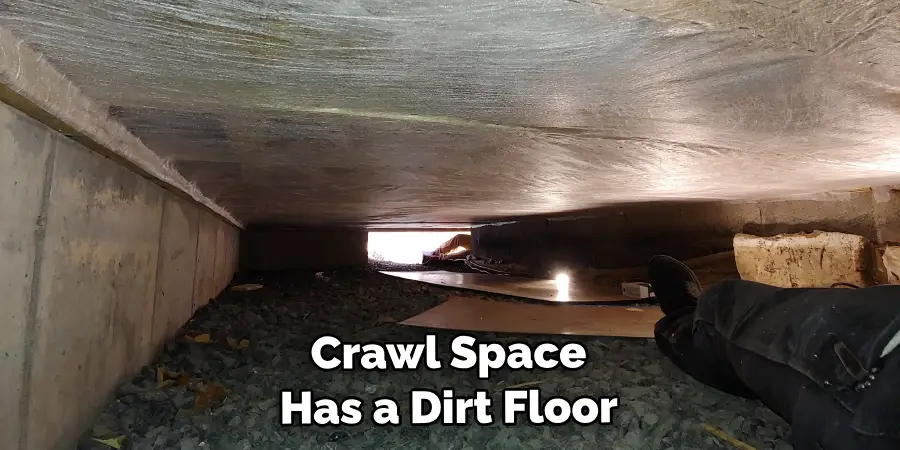
6. If your crawl space has a dirt floor, consider covering it with a vapor barrier. This will help prevent moisture buildup and keep the space drier and warmer. Moisture can contribute to frozen pipes.
7. If your crawl space is prone to flooding, make sure your sump pump is in good working condition. A flooded crawl space can lead to even more potential for frozen pipes.
8. During extremely cold weather, keep a faucet or two slightly open to allow a constant drip of water. This will help prevent freezing and also release any built-up pressure in the pipes.
9. If you’re going to be away from home for an extended period during the winter, make sure to shut off your main water supply and drain all water from your pipes. This will greatly reduce the chances of frozen pipes while you’re away.
10. Finally, consider having a professional plumber inspect your crawl space and pipes. They can identify any potential issues and provide additional tips specific to your home’s setup to prevent frozen pipes. Overall, the key is to keep your crawl space as warm and dry as possible to prevent freezing water pipes.
By following these tips and tricks, you can ensure that your home’s water pipes in the crawl space stay safe from freezing during the winter months. Don’t let frozen pipes cause damage to your home and inconvenience for you – take preventative measures now! So, be proactive and keep your pipes warm!
Frequently Asked Questions
Why Do Water Pipes in Crawl Spaces Freeze?
Water pipes in crawl spaces can freeze due to a combination of cold temperatures and exposed pipes without proper insulation. When temperatures drop below freezing, the water in pipes can freeze and expand, causing the pipes to crack or burst. Crawl spaces are often left unheated and lack adequate insulation, making them more prone to freezing temperatures.
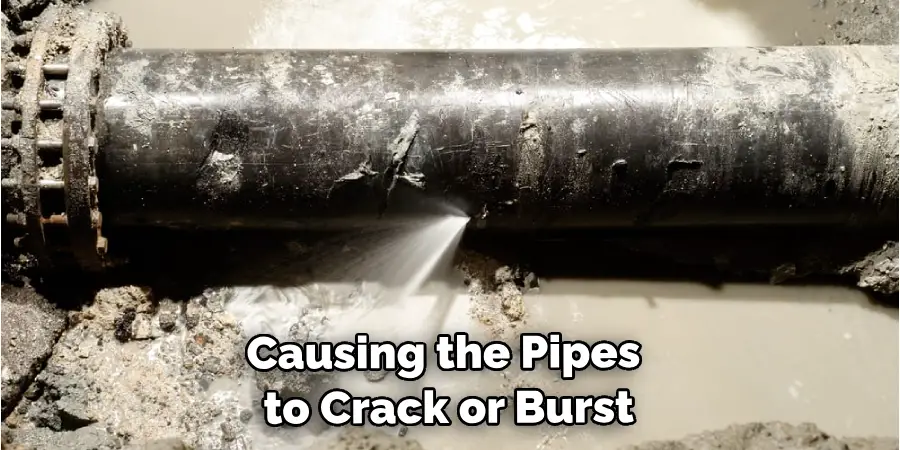
How Can I Prevent My Water Pipes From Freezing?
Insulating your crawl space and pipes is the most effective way to prevent freezing. You can also install heat tape or use a space heater to keep the area above freezing temperatures. Additionally, letting a faucet drip can help prevent freezing as the moving water is less likely to freeze than stagnant water.
What Should I Do If My Water Pipes Freeze?
If your water pipes have frozen, turn off the main water supply and open taps to relieve pressure in the system. You can then use a hair dryer or heat gun to thaw the pipes. Never use an open flame or electric heater as they can cause damage to pipes and increase the risk of fire.
Can I Insulate My Pipes After They Have Already Frozen?
Yes, you can add insulation to your pipes after they have frozen. However, it is important to first thaw the pipes and inspect for any cracks or damage before insulating. If you find any damage, it is best to repair or replace the pipes before insulating.
Is There Anything Else I Should Consider When Preventing Frozen Water Pipes?
Aside from insulation, it is important to seal any cracks or openings in your crawl space to prevent cold air from entering. You should also keep your crawl space door closed and consider installing a vapor barrier to prevent moisture buildup. Regularly checking for and repairing any leaks in your pipes can also help prevent them from freezing.
What Happens if My Water Pipes Burst?
If your water pipes burst, turn off the main water supply immediately and contact a plumber to repair the damage. It is important to act quickly as burst pipes can cause extensive water damage to your home. If you have insurance, be sure to document the damage for your claim.
Can I Insulate My Water Pipes Myself?
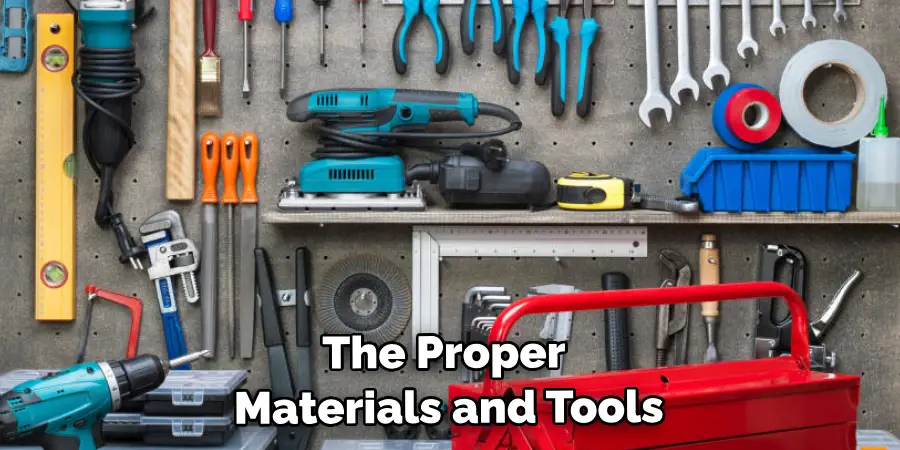
Yes, you can insulate your water pipes yourself with the proper materials and tools. However, if you are not comfortable or experienced with DIY projects, it is best to hire a professional to ensure proper installation and prevent any potential damage to your pipes.
Conclusion
Now you know how to keep water pipes in crawl space from freezing. By insulating your pipes and crawl space, sealing any openings, and regularly checking for leaks, you can prevent frozen pipes and avoid the costly damage that comes with burst pipes.
Remember to also take precautionary measures during colder months by letting faucets drip and using additional heating methods if needed. Stay proactive in protecting your water pipes to ensure uninterrupted access to water throughout the year. So, if you have a crawl space with water pipes, be sure to take the necessary steps to prevent freezing and ensure the functionality of your plumbing system. With proper insulation and maintenance, you can avoid potential headaches and expenses in the future. Happy piping!

